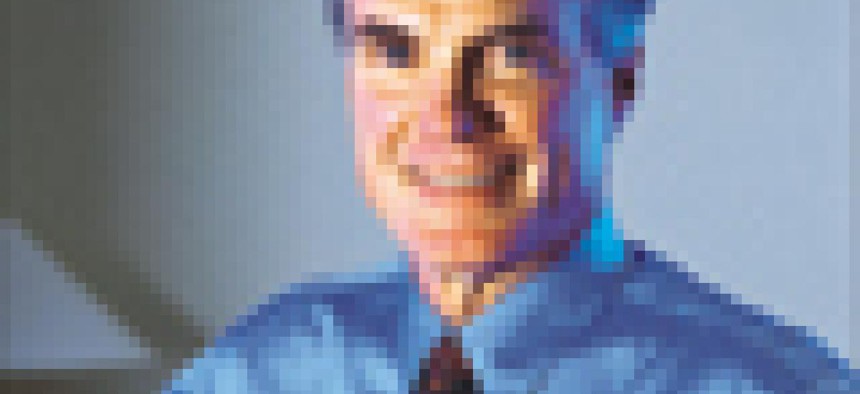GMU Scholorship Program Gains Attention

George Mason University and eight companies in the greater Washington area have kicked off a national to attract top-quality transfer students to the Fairfax, Va., school with this carrot: a free academic ride for the next two years.
By Trish Williams, EditorGeorge Mason University and eight companies in the greater Washington area have kicked off a national program to attract top-quality transfer students to the Fairfax, Va., school with this carrot: a free academic ride for the next two years. The first group of 20 students came to the university's Fairfax, Va., campus this fall, capping planning for a program that started last spring, said Lloyd Griffiths, dean of George Mason's School of Information and Technology and Engineering.Informal feedback from both the students and their corporate sponsors indicates the companies "are extremely pleased with the students," Griffiths said. A lessons-learned meeting set for later this month will review administrative issues that need better coordination, he said.The goal of the program, called TopHATS, is to lure high achievement, junior-level students at other institutions to complete their studies at George Mason. Participating companies sponsor students in the program through a two-year pledge of $10,000 per student ($5,000 annually), develop professional relationships with them and offer them summer employment.The impetus for the program was twofold. First, TopHATS addresses the work force shortage issue by attracting highly qualified IT workers to Northern Virginia from out of the area, Griffiths said. Second, since the academic qualifications are stringent (3.5 GPA or better), the school benefits from having a group of bright, motivated students. "It's a win-win situation," Griffiths said.Because his school has more undergraduate applications from transfer students (those who have completed at least two years of engineering college education) than it does from freshman, it "is somewhat unique and therefore highly motivated to attract high-quality transfers," said Griffiths. Full-time tuition at George Mason is $4,344 per year for in-state students and $12,504 per year for out-of-state students. With the TopHATS program, the corporate sponsors pay $5,000 per year for each student with a two-year commitment of $10,000; GMU provides the difference between in-state and out-of-state tuition, university officials said."It looks like it's a creative approach to attracting and maintaining talent in this area. We have our fingers crossed," said David Oates, senior engineering manager for Lockheed Martin Federal Systems in Manassas, Va. His company currently has one student lined up to participate in the TopHATS program who is not slated to start until January.Other companies participating in the TopHATS program are: DynCorp, Electronic Data Systems Corp., MetroCall, Mitretek, SAIC and Systems Applications. Landmark Systems Corp., a Vienna, Va., provider of performance management solutions, is signed up to sponsor six students. So far, so good. The students "have been working out great," said Andrew McCasker, vice president of distributed products at Landmark. All but one is working part-time during the fall semester, and they all plan to be back this summer, he said.For Landmark, the program allows the company "to build a long-term pipeline." One advantage over trying to recruit students directly from campuses nationwide, he said, is that seniors tend to gravitate toward companies with marquee names although smaller software companies can offer equally attractive opportunities. This program gives juniors the chance to "size up us, and we can size up them," he said.The program appealed to Lockheed Martin officials' need for talent and their desire to sign up skilled IT candidates at an early age. "We're looking for the best talent we can get, and this is one way to do it," Oates said.These days, managers at Lockheed Martin and many other companies also are looking at the bigger picture of providing careers rather than jobs. "We want to get people started at a young age and work them through the business," said Oates.But looking at them after two years of college is not without risk, several industry observers said. While many IT companies have some form of scholarship programs already in place, they typically have a payback. A key difference with the TopHATS program is there is no requirement the students work for the sponsoring company, they said. Some officials familiar with it speculated the TopHATS program could evolve over time. When companies shell out $10,000 per person, they want to see a payback, one observer said.


Lloyd Griffiths
NEXT STORY: Calendar